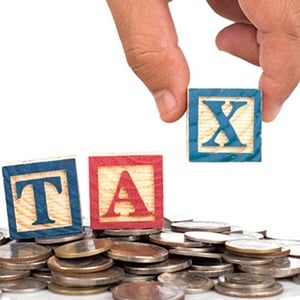
We’ve seen it many times: government introduces a tax or regulation which has undesirable consequences.
To remedy the harm, government proposes to introduce yet another tax or regulation.
This is the circular logic with which the South African government operates and generates revenue.
National Treasury has announced that the ostensibly “weak” carbon tax in South Africa will be replaced with a “strong” one in 2023.
This means that the various tax exemptions that exist today will be eliminated.
The year 2023, then, is also when Eskom will become liable to pay the tax.
Being the country’s largest carbon emitter, it will cost the utility upwards of R11 billion per year in taxes to comply.
Eskom’s bellyaching has already begun.
A more ideal situation could not exist for a cash-strapped government.
Because of its new tax liability, Eskom will unceremoniously announce that it needs to hike its tariffs so as to pass the cost of the tax on to the consumer.
So, not only does government boost its own revenue by requiring South Africans to pay the new tax, but the absurdity of also having Eskom pay the tax (essentially someone “paying” themselves by taking money out of their left pocket and putting it in their right pocket) has created a justification for tariff increases.
This is not the only situation where we have seen such ridiculous behaviour from government.
It is now beyond question that South Africa’s astronomical unemployment rates are a result of a very burdensome labour policy environment.
Businesses, particularly small businesses, are reluctant to hire new staff because they simply cannot afford to comply with the host of requirements set by labour laws and more recent empowerment codes like the Mining Charter.
So what do they do? They mechanise, computerise, or simply close-up shop.
The statutory powers given by the Labour Relations Act to militant labour unions, too, do not inspire confidence among domestic or international investors.
This adds to the general enterprise-unfriendly environment that businesses have to operate in, with regulations and taxes stifling any kind of innovation or expansion.
Most other economies in the world, particularly Africa, are growing – we are one of the exceptions.
In short, South Africa’s economic and employment malaise is due to nothing more than government’s own interventions in the market, and not some nebulous “international economic environment”.
But, wouldn’t you know it – government has a solution.
It introduced the Expanded Public Works Programme, innovation hubs, municipal employment programmes and centres, and a multitude of other interventions, organisations and task forces aimed at helping South Africans get work.
All of these programmes and policies cost the taxpayer more money.
In other words, again, government has created a problem and then proposed ostensible “solutions” which simply fill government coffers even more – all at our expense.
The perversity of this is further compounded: All taxes (and tariffs), without exception, are taxes on the poor.
Regardless of how many products have been exempted from VAT, the income tax or corporate tax burdens that are supposedly borne by the rich are effortlessly passed on to consumers, whether rich or poor, when there remains no choice but for suppliers to raise the price of their goods and services.
Everyone then pays more, and the poor, who have less disposable income, suffer the worst of it.
If R1 of a R11 cooldrink is the result of the sugar tax, someone with only R50 a month to spend on cooldrinks is going to be affected far worse than someone who has R200.
This is true for every tax, because every tax leads to higher compliance costs, and all compliance costs are regarded as part of expenditure that individuals and businesses need to, and do, recover from consumers.
Supposed “pro-poor” activists spite their own ostensible cause when they call for higher taxes in the name of so-called “redistributive” or “social justice”.
From their privileged pedestals, their moralising makes life infinitely more difficult for the most vulnerable people in our society.
Their noble intentions blind them to the unintended but actual consequences of their demands.
How our government behaves to secure funding is deeply contrary to the spirit of the Constitution, which committed South Africa to an open society founded on the advancement of human rights and freedoms and the supremacy of the Rule of Law.
These values are being trodden on as society races towards becoming more and more regulated and regimented, with fewer and fewer resources left in our own hands.
How else would the president be able to hold a lavish job summit or South African Airways continue flying and unintentionally deliver another batch of fleeing South Africans to their new homes abroad?
The arbitrariness inherent in many taxes and regulations mocks any notion of a supreme Rule of Law.
As much as people do not like to hear it, South Africa can only escape its economic downspiral by lowering taxes significantly, deregulating, liberalising the economy, and privatising anything that moves.
This will give the economy the room to breathe that it has been yearning for since the mid-2000s.
It will also allow the poorest among us to keep more of the little money they have and find jobs on their own merit without having to be a member of some government jobs programme.
Only freedom can create prosperity.
Martin van Staden is Head: Legal Policy and -Research at the Free Market Foundation and is pursuing a Master of Laws degree at the University of Pretoria. He is author of The Constitution and the Rule of Law (2019). The views expressed in this article are those of the author and not necessarily those of the Free Market Foundation.




 Publications
Publications
 Partners
Partners








